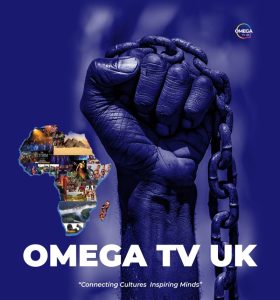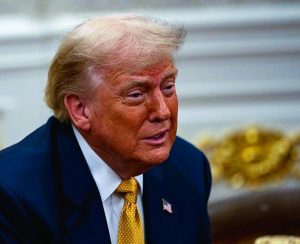Africa to be hit hard as UK foreign aid cuts revealed
3 min read
UK foreign aid cuts pose serious setbacks for African children’s education and women’s health.
UK Foreign Aid Cuts to Hit Africa Hardest, Threatening Education and Health Progress
Foreign Aid Budget Slashed to Boost Defence Spending
In a controversial shift in priorities, the UK government has announced a 40% reduction in foreign aid—cutting the budget from 0.5% to 0.3% of gross national income. This dramatic decrease is aimed at increasing defence spending to 2.5%, a move heavily influenced by pressure from the United States. The Foreign Office’s latest report highlights Africa as the hardest-hit region, with significant impacts on women’s health, children’s education, and access to clean water.
Women’s Health and Sanitation Face Steep Decline
The government’s strategic review of aid distribution reveals that critical programmes supporting women’s health and water sanitation in Africa will experience deep funding reductions. The report warns of elevated risks of disease and mortality in affected regions. Despite these threats, the UK insists its multilateral aid to institutions such as the World Bank and the Gavi vaccine alliance will remain untouched.
Aid Groups Condemn Government’s Political Priorities
Humanitarian organisations have voiced strong opposition to the decision. Bond, the UK network for international development organisations, criticized the move as “deprioritising” the needs of vulnerable populations—especially in conflict-affected countries like South Sudan, Ethiopia, and Somalia. Gideon Rabinowitz, Bond’s policy director, argued that the cuts would disproportionately affect women, girls, and marginalised communities.
Support for Education Diminished in Poorest Regions
Education programmes are also among the worst-hit sectors. UK-founded charity Street Child revealed that their initiatives in Sierra Leone, South Sudan, and the Democratic Republic of Congo will be curtailed. CEO Tom Dannatt described the decision as “sad and short-sighted,” warning that many children who previously had access to schooling will now be forced into street life or manual labour, limiting their futures and potential.
UNICEF Sounds Alarm on Child Welfare
UNICEF UK joined the growing chorus of criticism, calling the cuts “deeply short-sighted” and harmful to children and women. The agency called for a revised UK aid strategy that allocates at least 25% of funds to child-focused programmes. Philip Goodwin, CEO of UNICEF UK, stressed the urgency of prioritising children’s nutrition, education, and protection in any future aid plans.
MPs and Experts Challenge Government’s Rationale

Political leaders and aid experts have challenged the government’s justification for the cuts. Sarah Champion, Chair of the International Development Committee, said the move targets “the world’s most vulnerable people.” Critics argue that the government’s claim of ensuring “value for money” fails to consider the long-term impact of pulling support from high-risk regions and sectors.
Strategic Review Sparks Uncertainty for African Nations
The UK’s Foreign Office stated that aid cuts resulted from a “line-by-line strategic review” focusing on efficiency and responsibility. However, it has not yet disclosed which specific countries will see their bilateral support reduced. This ambiguity has left many aid organisations uncertain about the future of their ongoing programmes in Africa.
Not All Organisations Face Cutbacks
While many sectors suffer, the World Bank’s International Development Association (IDA) has been spared. The UK committed £1.98 billion over the next three years to support the IDA’s work in the poorest countries. This investment aims to benefit an estimated 1.9 billion people. Yet, this protection contrasts starkly with the broader pullback affecting women, children, and education initiatives.
Historical Commitment to Aid Reversed
The UK’s leadership in global development, once celebrated under governments led by Tony Blair, Gordon Brown, and David Cameron, is now in question. Having achieved the 0.7% aid target in 2013 and codified it into law in 2015, the UK began scaling back aid in 2021 amid pandemic-related economic pressures. Today’s cuts represent a significant departure from that legacy.
Future Uncertain for Africa’s Vulnerable Populations
The reductions in UK aid are expected to have lasting consequences across Africa, jeopardising years of progress in education, health, and development. As schools shut down and health services shrink, the continent’s most vulnerable groups—especially women and children—stand to lose the most. Without immediate strategic redirection, these cuts risk widening the global inequality gap.






